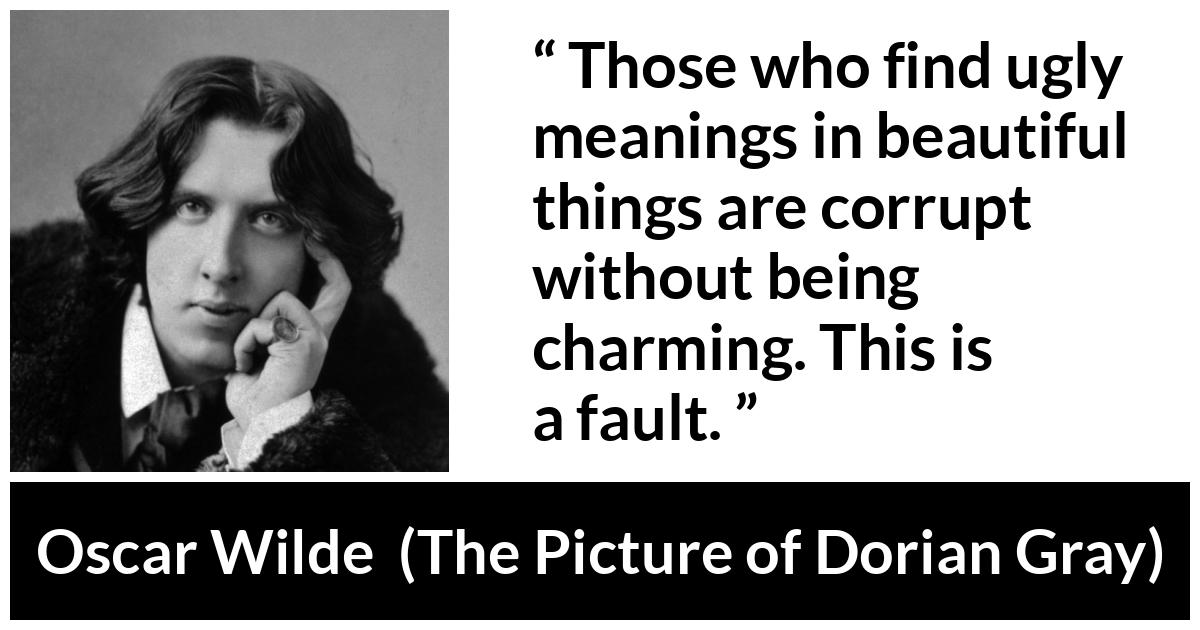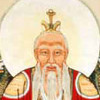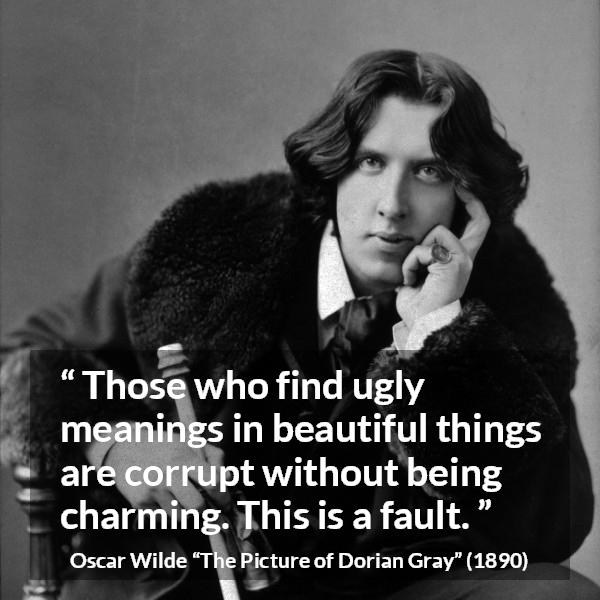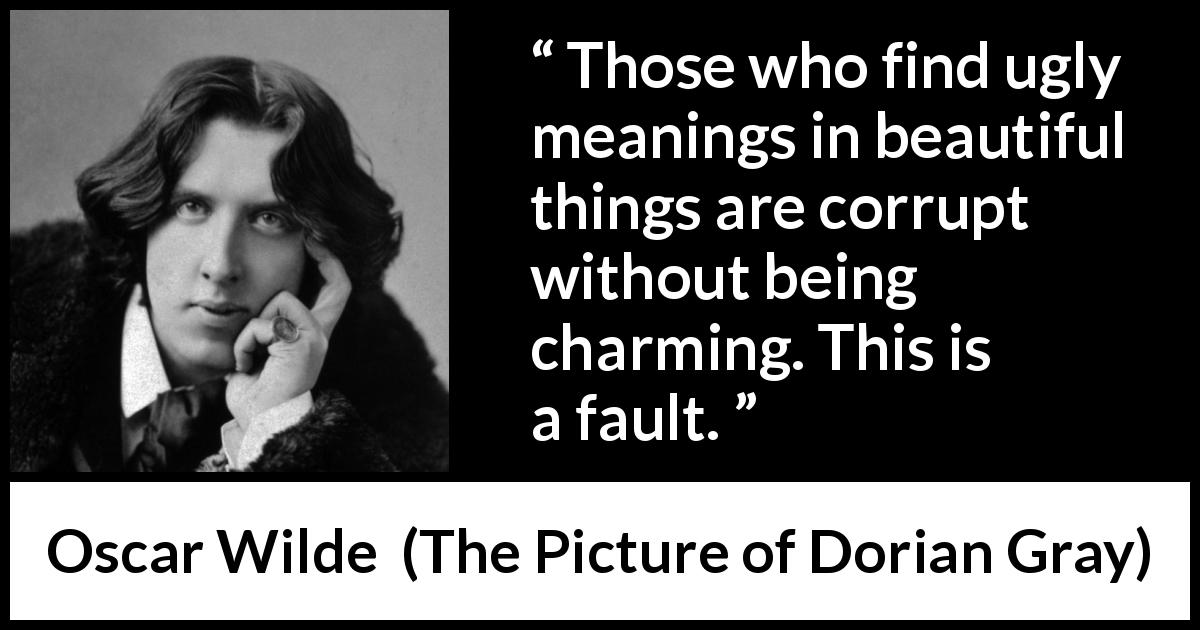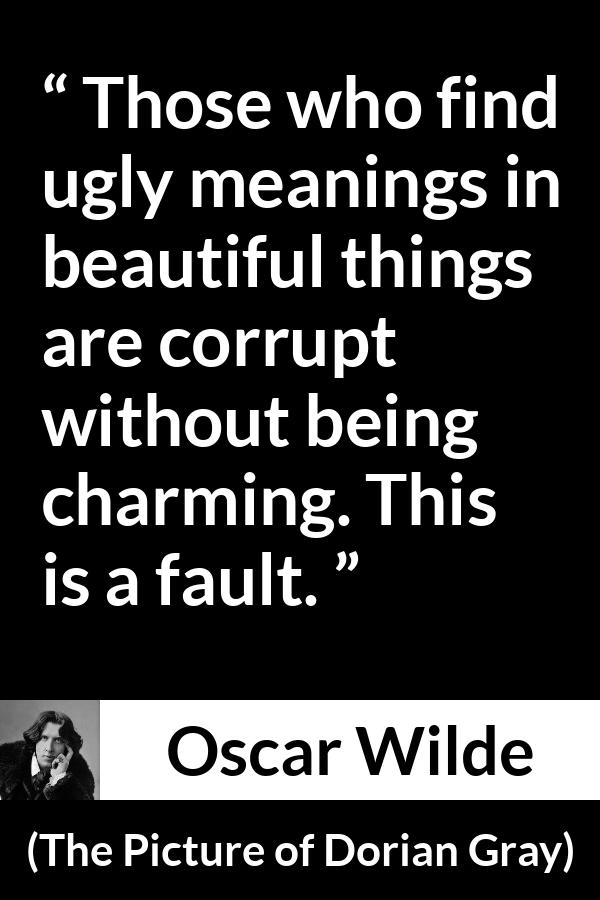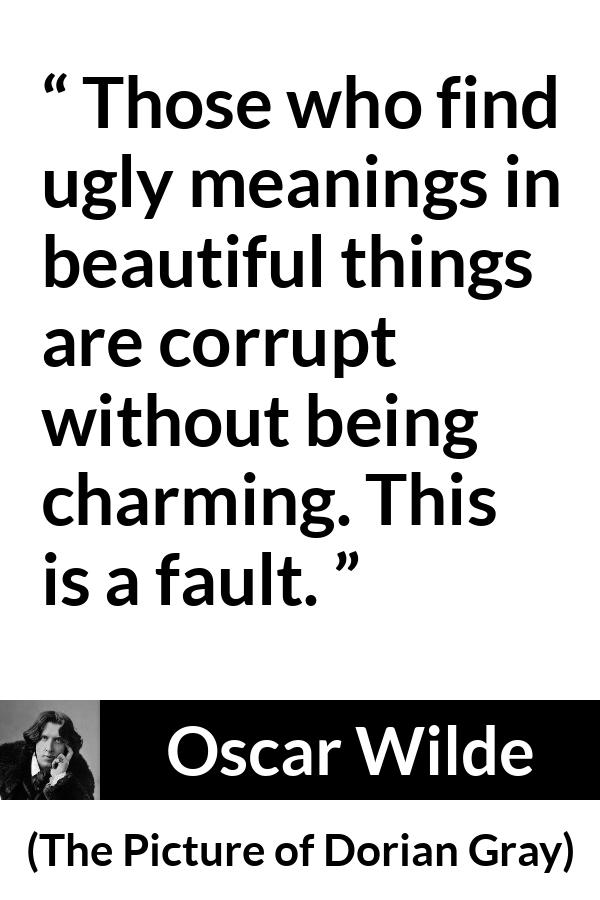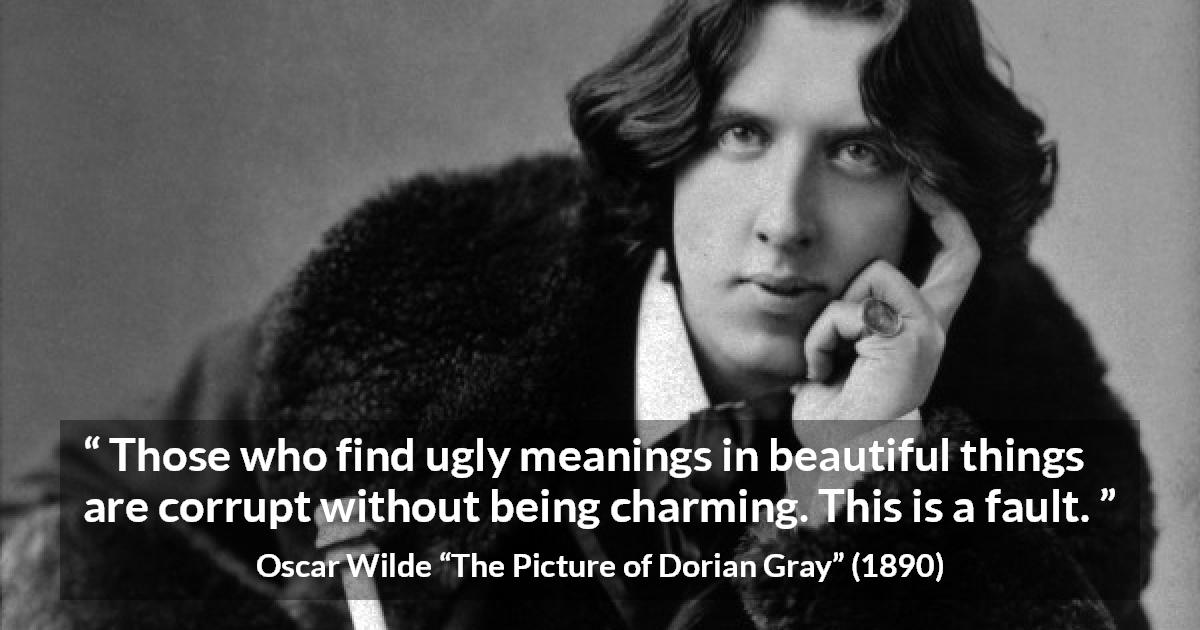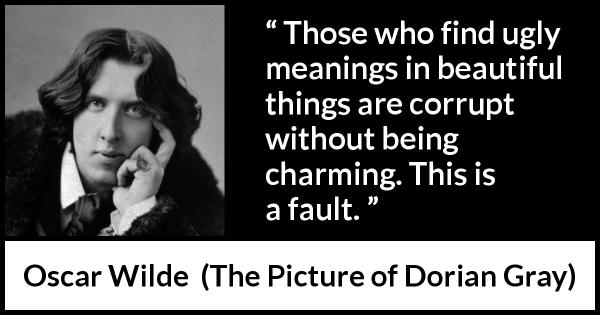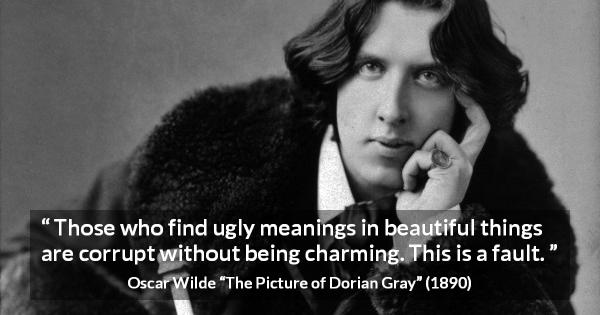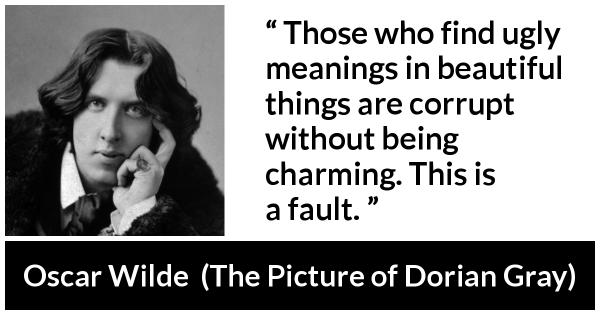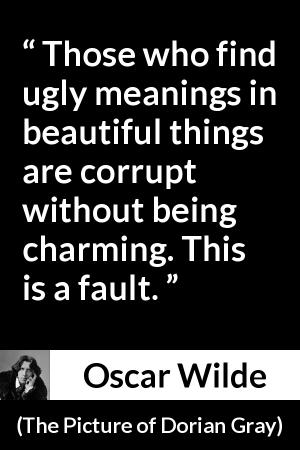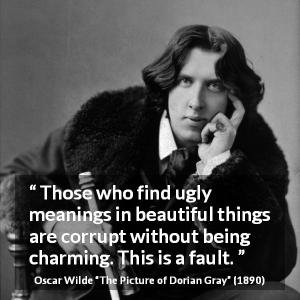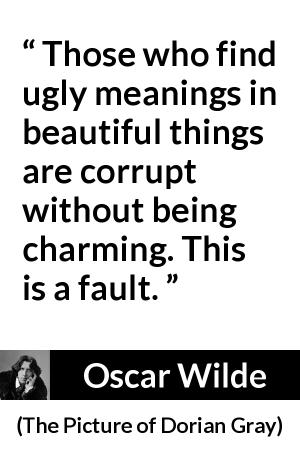“ Those who find ugly meanings in beautiful things are corrupt without being charming. This is a fault. ”
Oscar Wilde, The Picture of Dorian Gray (1890). copy citation
| Author | Oscar Wilde |
|---|---|
| Source | The Picture of Dorian Gray |
| Topic | meaning beauty corruption critics |
| Date | 1890 |
| Language | English |
| Reference | The Picture of Dorian Gray , Preface |
| Note | |
| Weblink | http://www.gutenberg.org/files/174/174-h/174-h.htm |
Context
“To reveal art and conceal the artist is art's aim. The critic is he who can translate into another manner or a new material his impression of beautiful things.
The highest as the lowest form of criticism is a mode of autobiography. Those who find ugly meanings in beautiful things are corrupt without being charming. This is a fault.
Those who find beautiful meanings in beautiful things are the cultivated. For these there is hope. They are the elect to whom beautiful things mean only beauty.
There is no such thing as a moral or an immoral book.” source
The highest as the lowest form of criticism is a mode of autobiography. Those who find ugly meanings in beautiful things are corrupt without being charming. This is a fault.
Those who find beautiful meanings in beautiful things are the cultivated. For these there is hope. They are the elect to whom beautiful things mean only beauty.
There is no such thing as a moral or an immoral book.” source
Meaning and analysis
Kwize Master
In the laconic preface he added to the publication of his novel in 1891, Oscar Wilde responds to the virulent criticism of his work by the champions of morality. He asserts that an artist creates beautiful things, and that cultivated people make beautiful interpretations of beautiful things. On the other hand, those who make hideous interpretations of works of art are both wrong and guilty.
useful
useless
